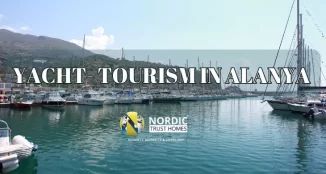Maritime and Cabotage Day in Turkey
The term "cabotage" has French origins and was incorporated into Turkish terminology according to the Law on the Use of Turkish Seas, adopted by the Grand National Assembly of Turkey on July 1, 1926.
Cabotage is the right of a state to grant its citizens advantages in the conduct of domestic maritime transportation. In the historical context, the young Turkish Republic inherited this practice from the Ottoman Empire, the state whose territories it took over after its fall.
Unfortunately, the Ottoman Empire granted the right of cabotage to foreign states, particularly France, which weakened the economic position of the country. Due to the shortsightedness of state administrators, ill-considered law preparation, and the inability of state institutions to fulfill their duties, most of the commercial activity in the maritime sphere came under the control of foreign companies.
Foreign states providing cabotage services enjoyed significant privileges. For example, they were exempt from paying taxes to the state, a practice that later became known as capitulation. Capitulation represented a system of privileges and benefits granted by the state to foreign states or companies to the detriment of its own citizens' interests.
The adoption of the Law on the Use of Turkish Seas in 1926 put an end to this practice, restoring Turkey's control over its seas and ensuring the protection of national interests in maritime transportation.

Unfortunately, the Ottoman Empire granted numerous privileges to European countries on its territory for many years. The railways, mining industry, and maritime transport are the most significant examples.
When the young Turkish Republic was established, it nationalized its mines and land transport. However, the privileges granted to the French in maritime transportation remained for a certain period. In 1924, the relevant countries and companies were warned to cease their activities in Turkish waters within six months. Despite this warning, they continued their activities. As a result, from July 1, 1926, these countries were banned from cabotage, and the right to trade in Turkish waters was granted only to Turkish citizens.
This measure was implemented in accordance with the principle of nationalism, one of the six fundamental principles of the Young Turkish Republic. Additionally, this date was declared Maritime Day and turned into a holiday involving state institutions in every coastal city.
The issue of exercising the right to cabotage illustrates an important truth that should serve as an example for contemporary state administrators. If a state is unable to provide its own transportation, especially automotive, railway, and maritime, it becomes dependent on foreign privileges. Today, some countries, having achieved significant technological progress in the field of transportation and communication, transfer their technologies to other countries and demand not only commercial benefits but also political privileges. In reality, modern wars often turn into struggles for such privileges between great powers.
For these reasons, it is extremely important for everyone to understand the significance of this holiday, which emphasizes the importance of transportation and communication, the vital arteries of the country. The right to cabotage is a crucial national issue that should be a priority for every state in the interest of its people.
Soon, we will celebrate another Cabotage Day with enthusiasm. We live in Alanya, and Alanya is our home. Therefore, on July 1st at 6:30 PM, we will gather at the Alanya Pier to celebrate Cabotage Day in the spirit of a traditional festival.
The esteemed governor, naval commanders, and port administration representatives will take their places according to protocol. Tourist boats will participate in the parade, swimming competitions will be organized, there will be demonstrations of water sports, and traditional competitions to capture the flag from a greasy pole.
We wish you an enjoyable viewing and an exciting time.








